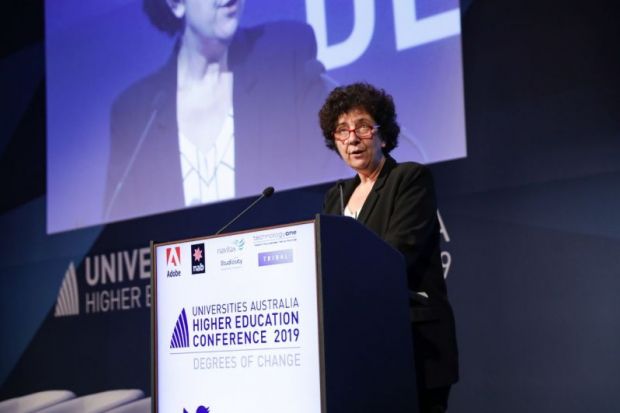French universities have reacted with horror after the country’s science minister announced an investigation into alleged “Islamo-leftism” in the country’s academy in an attempt to root out “militancy and opinion” over issues of race and colonialism.
Frédérique Vidal, who only last November defended French universities from such charges, has now turned on them, asking the country’s National Centre for Scientific Research (CNRS) to launch a probe to distinguish “academic research” from what she claims is political activism.
Her proposal is the latest escalation of rhetoric by the French government, which likely faces a challenge from the far right in next year’s presidential election, and which has claimed that some academics are stoking unrest in French society by focusing on issues such as race, immigration and religious division.
“Islamo-leftism”, a term that has gained particular currency in France among politicians of the right and at least some academics, describes a supposed convergence between the far left and radical Muslim movements that threatens Western values and the secular republic.
In an interview on 14 February, Ms Vidal agreed with her interviewer that there existed in universities “a sort of alliance between Mao Zedong and Ayatollah Khomeini”, although she did add that most academics were opposed. She later tweeted a statement of support for academic freedom.
The CNRS itself, in a CNRS.fr/fr/l-islamogauchisme-nest-pas-une-realite-scientifique">statement released on 17 February, condemned the use of the term and said it was “ill-defined” and “did not correspond to any scientific reality”.
The organisation, a collection of more than 1,000 labs across France, warned that the term was being used to undermine academic freedom and to delegitimise areas of scholarship that focus on race or post-colonialism.
“The current polemic around ‘Islamo-leftism’, and the political exploitation that is made of it, is emblematic of a regrettable instrumentalisation of science,” the CNRS said. However, the organisation added that it would nonetheless help the ministry assemble a study “to shed scientific light on the fields of research concerned”.
France’s Conference of University Presidents (CPU) expressed its “astonishment” at what it called a “sterile polemic” by the minister.
Emiliano Grossman, a political scientist at Sciences Po, said the French government was likely trying to curry favour with supporters of the far right by taking on their “pet issues” such as alleged left-wing bias in academia.
“It’s not like there is an actual research agenda; it’s not even a concept,” he said. “[Islamo-leftism is] an expression used on right-wing TV news shows, and now someone will have to take it seriously. It’s a waste of public resources in my book. And it will probably lead to some report at some point, but I cannot possibly imagine how this could be done seriously,” he added.
“Anyone who works on racism, particularly if they’re non-white and therefore ‘not objective enough because too close to the subject’, is dismissed as critical, engaged, militant, confrontational, and their work rubbished as unscientific regardless of how empirical it is,” said Simon Dawes, a media lecturer at the Université de Versailles Saint-Quentin-en-Yvelines, who has warned that academic freedom is under threat in France.
In a statement, the Ministry of Higher Education, Research and Innovation said the scope of the investigation would be set out in the “coming days”, and it would focus on “defining the existing currents of study in France”. Rather than the CNRS alone, it will be carried out by the Athena Alliance, a grouping of French humanities and social science bodies that includes the CPU and the CNRS.
Register to continue
Why register?
- Registration is free and only takes a moment
- Once registered, you can read 3 articles a month
- Sign up for our newsletter
Subscribe
Or subscribe for unlimited access to:
- Unlimited access to news, views, insights & reviews
- Digital editions
- Digital access to THE’s university and college rankings analysis
Already registered or a current subscriber? Login








